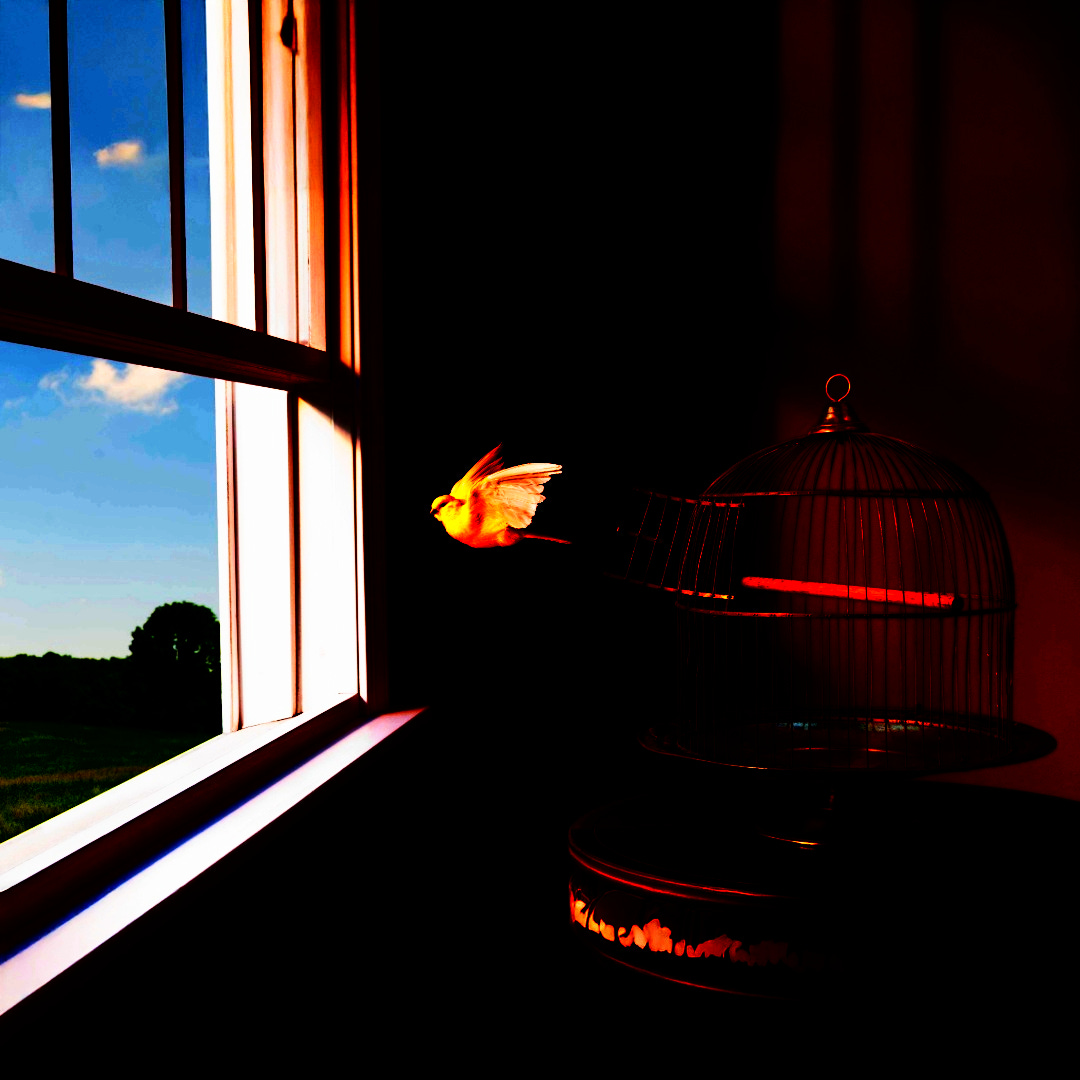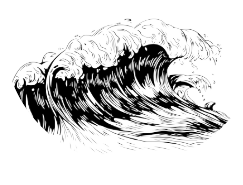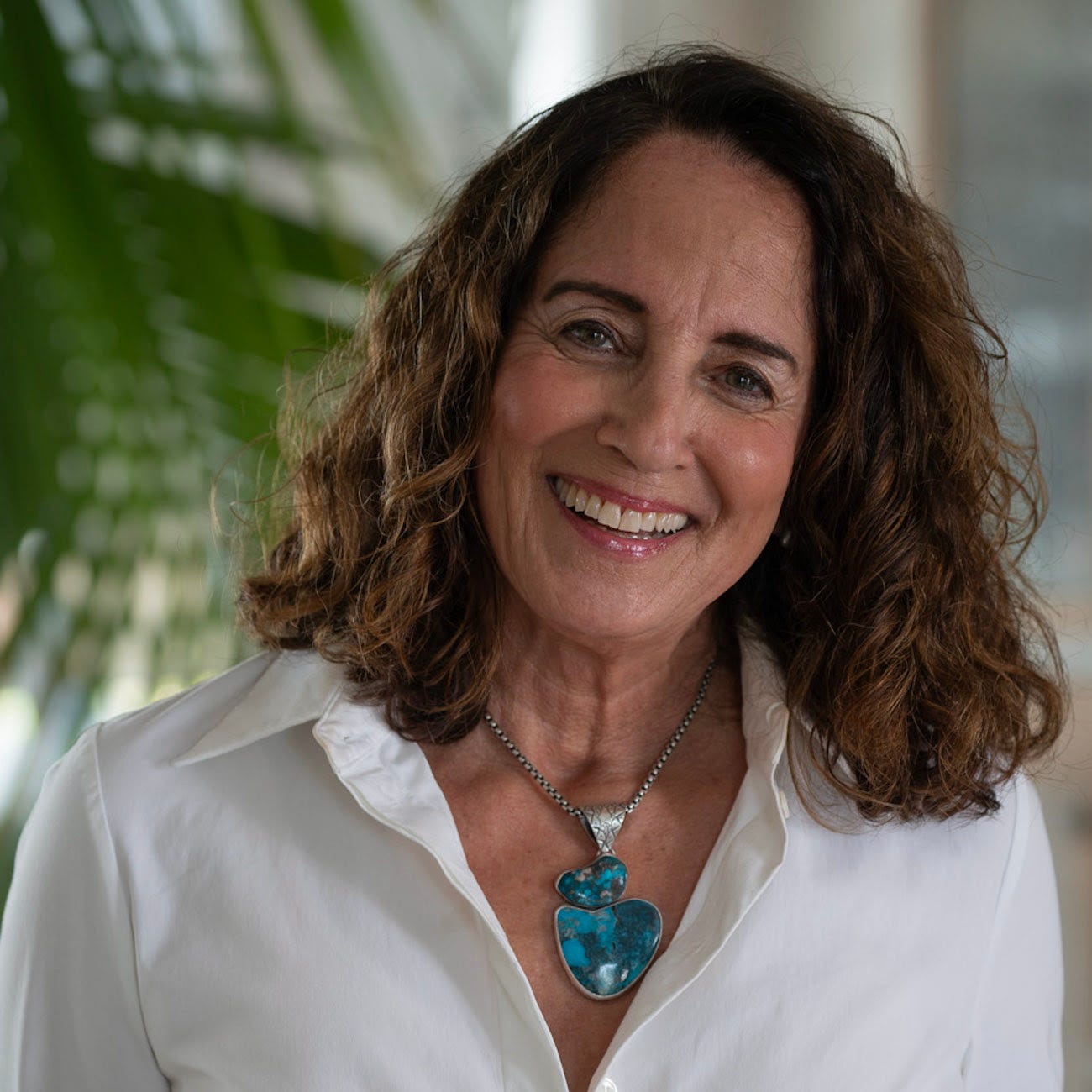how my mother's love of parakeets transferred to me
by Diana Raab
MY MOTHER WANTED A PARAKEET instead of me. She’d always loved birdwatching and thought that a parakeet would make a good pet. She enjoyed how vocal they were and liked the idea that she could train them to repeat certain words. She also preferred the fact that as they grow up, they do not talk back as children tend to do when they become independent. The truth is, unlike my father, she did not like children and thought a bird would be more suited to her sensibilities for a low-maintenance and narcissistic lifestyle.
My father was not aligned with this worldview. As a Holocaust survivor who spent five of his formative years in Dachau, he’d lost most of his relatives. He wanted to replace them by creating a new family for himself. He also believed that the best way to move forward after those types of events was to bring more children into the world. Two years into their marriage, he used his European charm to convince my mother that a child would be much more gratifying than a parakeet. In his view, having one child would be better than none.
After months of unprotected sex and a summer holiday at an upstate New York resort, my mother learned that she was pregnant. Exactly nine months later, on Mother’s Day the following year, she gave birth to me—a crying five-pound baby girl. My father and maternal grandmother were over the moon happy. My father was so happy that he painted our suburban New York two-story shingle house pink to match his pink Chevrolet which sat prominently in our driveway.
Even before my entry into the world, my mother made it perfectly clear that she didn’t want to be a stay-at-home mother. It was the 1950s, a time when most women did not have college degrees. She was proud of her bachelor’s degree in English literature and minor in psychology from New York University. She saw herself as too educated to change diapers and make peanut butter and jelly sandwiches. Thus, after I was born, she returned to work, delegating my care to my adoring grandmother, who lived with us, along with my grandfather. My mother chose not to breastfeed me as she viewed it as something lower-income women did because they could not afford formula.
Her job in the front office of Dr. Shuster’s medical practice fulfilled her needs for extra income and intellectual stimulation. Dr. Shuster also served as a father figure, to replace her absentee father who spent much of his time, as far as we know, in New York City frequenting popular restaurants and attending Broadway plays. Cheerful Dr. Shuster was married to a depressed and somber woman, and the neighborhood rumor was that, as a result, he was having an affair with my mother, twenty-five years his junior. Nobody ever confronted either of them but there was quiet talk on the streets. One never really knows the truth when it comes to stories like this, especially since back in the 1960s extramarital interests and affairs were much more taboo and not openly talked about.
My mother left each morning at the crack of dawn to open up Dr. Shuster’s office, while my grandma stayed home to take care of me. Once in a while over dinner, my mother continued to mention to my father that she wanted a parakeet. Eventually, he gave into her desire to have a parakeet, but a few days later, it ended up flying out her bedroom window. This seemed to exemplify her lack of skills as a mother or caretaker. She was too busy either working or going horseback riding, a hobby she’d had for decades.
In 1960, I turned six and began kindergarten. My beloved grandmother prepared my brown paper bag lunches and got me ready for the school day. After her morning shower, she descended the wooden stairs to the kitchen to prepare me a yummy breakfast of bacon and French toast stacked two inches high. She dusted the French toast with powdered sugar and drizzled it with warm maple syrup.
My grandparents owned a general store in Brooklyn under the L train, and when I was at school my grandmother took the train to work. On the days she was not working at the store, she took the train to New York City to teach ballroom dancing, at the same dance hall where my parents met. By the time I was nine, I became a latchkey kid. Because of the amount of time I spent alone, my best friend and confidant became the little red vinyl diary with a lock and key that I received from an aunt for my eighth birthday. On those pages, I shared secrets that I only had shared before with my Tiny Tears doll. Each night before bed, I dressed her in her pajamas after I donned mine, and she slept beside me for the entire night. She also sat with me during my journaling sessions on the floor of my walk-in closet, my first literary hideaway.
One day, just after my tenth birthday, something life-altering happened in my childhood home. In their usual fashion, my parents had left for work at first light. My grandparents shared the room beside mine, and my grandfather was away visiting his sister Rusza in Paris.
Cindy, my best friend who lived around the corner, had called to see if I could come to swim in her above-ground pool. Holding the pink dial phone with the extra-long cord that I used to love wrapping around my body, I checked my watch and saw it was 10 a.m., way past the time when my grandmother usually woke up. My gray cat, Pixie, came out of the family room and brushed her spine against my shin, meowing.
“I don’t know, Cindy,” I told my friend. “I have to ask my grandmother. Can I call you back?”
“Sure,” she said.
I left my needy cat in the kitchen, ran up the wooden staircase to my grandmother’s room, and knocked on her door. She didn’t answer. I knocked again. There was still no answer. I gently turned the tarnished brass doorknob to take a peek inside. My grandfather’s bed, the one near the door, was made up with a light pink electric blanket and two pillows, which he said helped him breathe easier at night, after decades of smoking as a young lad in Austria. His bed was neatly made. I called my grandmother’s name from the doorway, but she didn’t respond.
I slowly tiptoed over to her single bed near the large second floor window overlooking the street, as the sheer white curtains swayed in the morning wind. I gently nudged her shoulder.
“Grandma, can I go to Cindy’s?” I asked.
There was no answer. I asked her again, this time with a sense that there was something seriously wrong. My grandmother was a deep sleeper, but she usually responded the second time I called her name.
I felt a breeze on my back and turned around to notice the cherry tree outside the window had a white bird on the big branch. I wondered if that was the one that flew out of my mother’s window years earlier. For a moment, I fantasized that he’d fly in the same window he flew out.
I glanced up at the wooden headboard with a shelf behind my grandmother’s bed. On one side was an open bottle of pills, on the other, a glass half full of water. With a child’s instinct, I felt there was something really wrong with my grandmother, and a strange chill made its way up my spine. I got scared and dashed out of the room to the phone in my parents’ room on the other side of the hallway.
Within half an hour, an ambulance had pulled up into our driveway, and two men came out holding a stretcher. They knocked on the front door and then they walked right in and asked where my grandmother was. I told them to go up the stairs. They carried the stretcher upstairs and entered the bedroom, and moments later, my grandmother was taken down the stairs, put into the back of the ambulance, and taken away.
That night, Mom sat me down on the yellow velour sofa in our living room to tell me that my grandmother had died. The following morning, my parents dressed all in black and dropped me off at my aunt and uncle’s house on the West Side of New York City.
Back in those days, death was not something spoken about openly. I remember hearing my mother say that ten-year-olds don’t understand the permanence of death. My aunt and uncle did not talk much that day. They didn’t even try to explain anything to me. They didn’t have any children, and looking back, I don’t think they believed it was their place. All they did was to keep trying to feed me, as a distraction from the situation. The day seemed painfully long, and my most memorable form of entertainment was taking a trip down the elevator to the milk machine in the basement with twenty-five cents in my hand. It felt good to be given a chore where I did not have to be supervised.
My parents picked me up later that day, and we sat in the car in silence on the way home. That drive was like our dinners. Conversation was always minimal, which might be one of the reasons I became a writer. I do remember breaking the silence by saying to my mother, “Maybe Dad will let you get a parakeet now. It will make you feel better.” My mother turned around to me in the back seat and took my hand. “Oh, dear Diana, Dad must have told you the story from before you were born. Now that you’re here, I cannot believe how silly I was to say such a thing. You mean so much to me. I cannot imagine my world without you.”
Life was not the same after my grandmother died. My mother stopped working and enrolled me in ice skating lessons so that I could skate with my father who taught ice skating at Rockefeller Center in New York City. His claim to fame was that he taught actor Paul Newman how to skate. My father and my grandmother, Regina, both knew how to show their love to me. I do believe, although he never stated it that way, that his higher power was love. Unfortunately, he died too young at seventy-one, the age I am now.
My mother, like many narcissists, is still alive at ninety-four. She’s in a nursing home and is finally grateful that she had me because I am the only one in the family who has maintained contact with her. This is not surprising because she never nurtured relationships. Although she never told me so, I think she’s happy my father convinced her to drop the idea of getting a parakeet and have me instead. While there has been some tension between us in the past, I am forever grateful to my mother for giving me my life. I know she is thankful that I am in her life as well, but I cannot ignore the fact that she has always liked birds and animals more than children.
About the author:
Diana Raab is a memoirist, poet, workshop leader, thought-leader, and award-winning author of fourteen books and editor of three anthologies. She frequently speaks and writes on writing for healing and transformation. Her latest book is an anthology called, Women in A Golden State: California Poets at 60 and Beyond (Gunpowder Press, 2025). Her newest memoir is Hummingbird: Messages from My Ancestors (Modern History Press, 2024). Raab writes for Psychology Today, The Good Men Project, Sixty and Me, Medium, and is a guest writer for many others. Her Website.





